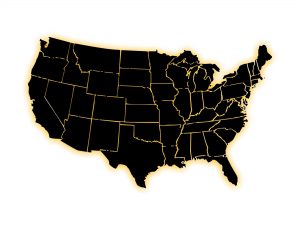Organized Retail Crime Associations: The Complete List
LP Magazine‘s comprehensive list of organized retail crime associations is designed to be a helpful resource for retailers and law enforcement.
By Jac Brittain, LPC
The number of organized retail crime associations (ORCAs) has grown steadily in recent years, with a primary emphasis on assisting law enforcement, retail investigators, and prosecutors with the identification, investigation, and prosecution of those involved in organized retail crime.
In response to the scope and severity of organized retail crime concerns across the country, there has been an increased effort on the part of retailers and law enforcement agencies to share information regarding organized retail crime at the local, state, and regional levels.
Organized retail crime associations have helped provide that vehicle, opening doors to improve legislation, enhance investigations, and build cooperative relationships in the battle against organized retail crime… Read the full article.
Offender Perspectives on Self-Checkout Theft
Through interviews with dozens of shoplifters with recent self-checkout theft experiences, researcher Stephanie Lin explored their shoplifting behaviors, methods, and the thought process behind why they chose to leverage this method to conduct theft.
By Stephanie Lin
The convenience of self-checkout has made the service increasingly popular among customers in recent years. Retailers also take advantage of the self-checkout technology to reduce labor costs and speed up the checkout process.
Unfortunately, this convenient option is popular among genuine customers and fraudsters alike… Read the full article.
RESEARCH: Retail Theft and Loss Prevention Analytics
By David Speights, Ph.D., Daniel Downs, Ph.D., and Adi Raz, DBA
According to the 2016 National Retail Security Survey, US businesses lost around $45.2 billion in 2015 to retail theft, more than 1.38 percent of overall sales, making retail theft one of the leading issues facing retailers today.
According to the National Association of Shoplifting Prevention (2006), more than 9 percent of consumers are shoplifters. They are apprehended, on average, only once in every 48 times they shoplift. There are many types of retail theft, which can be measured by calculating the loss from employee theft, shoplifting or organized retail crime, administrative errors, vendor fraud, and return fraud.
Who shoplifts? There is no typical profile of a shoplifter. Based on our experience of interviewing offenders, shoplifters can be male or female, of any race, as young as five or well into their seventies… Read the full article.
How to Catch Someone Stealing without the Use of Excessive Force
Better scenario training can help loss prevention officers understand how to catch someone stealing without creating risk to all parties.
By Garett Seivold
Use of force by LP agents is a persistent concern for loss prevention executives. With it, comes the potential for excessive force, a lawsuit, and safety risks to all parties—LP agents, store associates, perpetrators, and bystanders.
In The Handbook of Security, Read Hayes, Ph.D., CPP, director of the Loss Prevention Research Council, describes the stakes. “Because of their role in deterring and apprehending dishonest customers, store detectives can either add value to an organization or create serious liability, making detective selection, training, and management very important.”… Read the full article.
Why Do People Steal? Examining the Robin Hood Complex
Why do people steal, and what does the Robin Hood complex have to do with it?
By Mike Giblin, LPRC
Interviewing active shoplifters is the most interesting part of my job. For an hour, I speak as seldom as I can. I listen, and I observe. What they have to say is fascinating. Their actions and mannerisms weave together with their words like a code waiting to be cracked. Why do people steal?
The interview starts with me doing most of the talking. I attempt to make them comfortable and fill them in on on what I’d like to know, were I in their position. I speak and I watch carefully as they try to decide whether I’m an authority figure or a guy who just wants to shoot the breeze and hear about their craft. Jokes help. Compliments help even more. I make it clear that this isn’t a confessional. They don’t need to apologize to me, or fear me, or even try to impress me… Read the full article.
